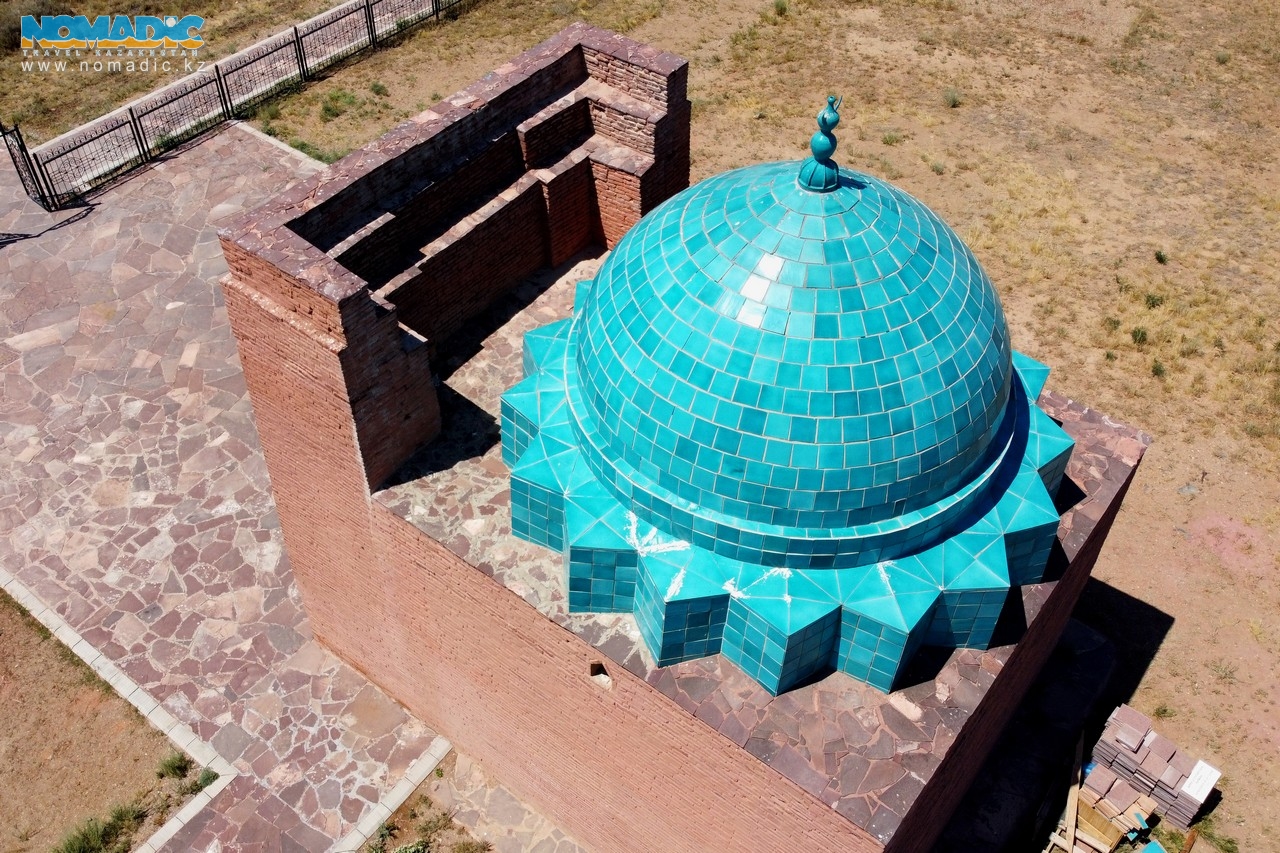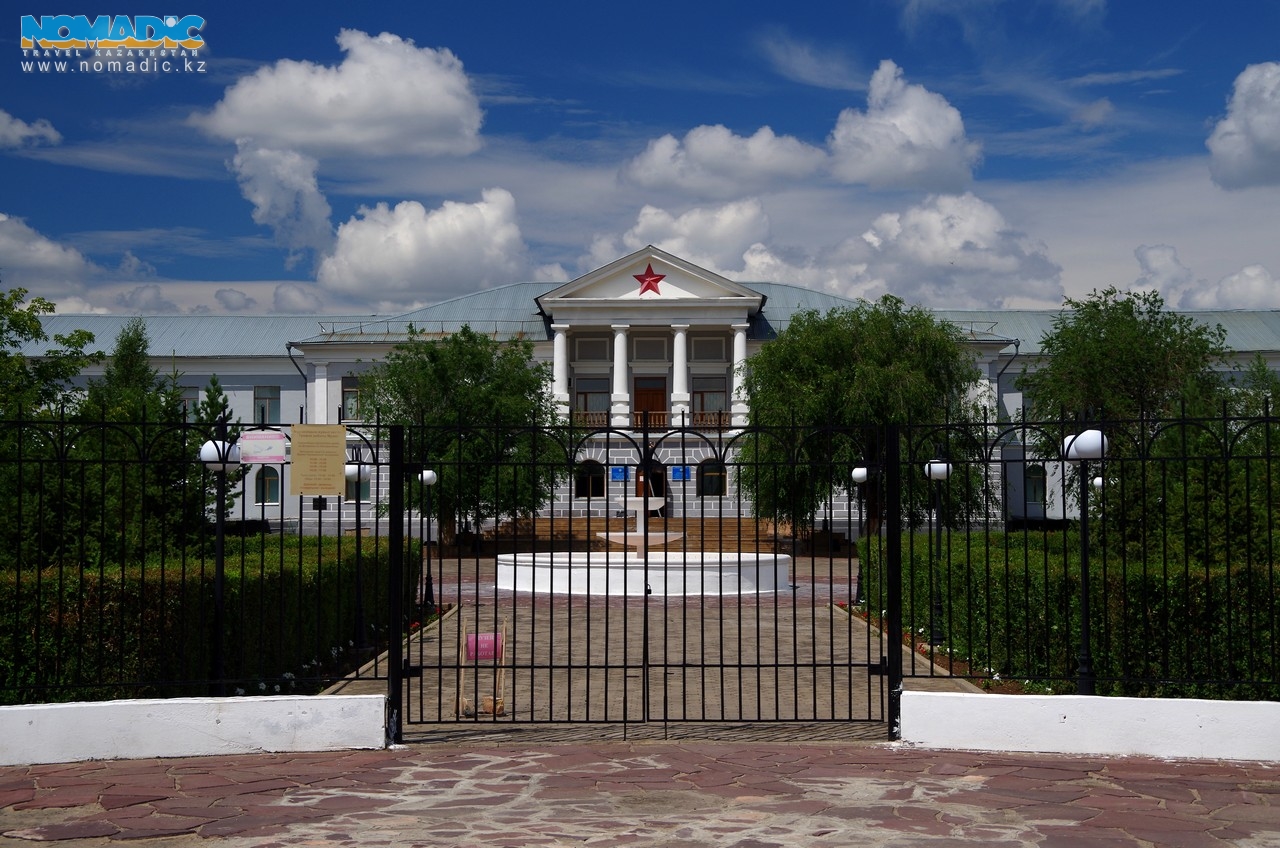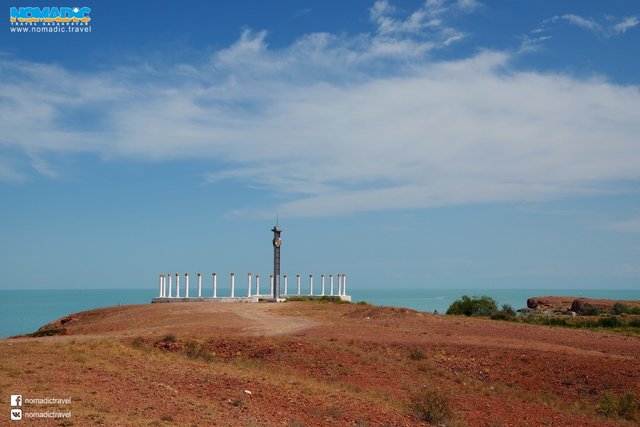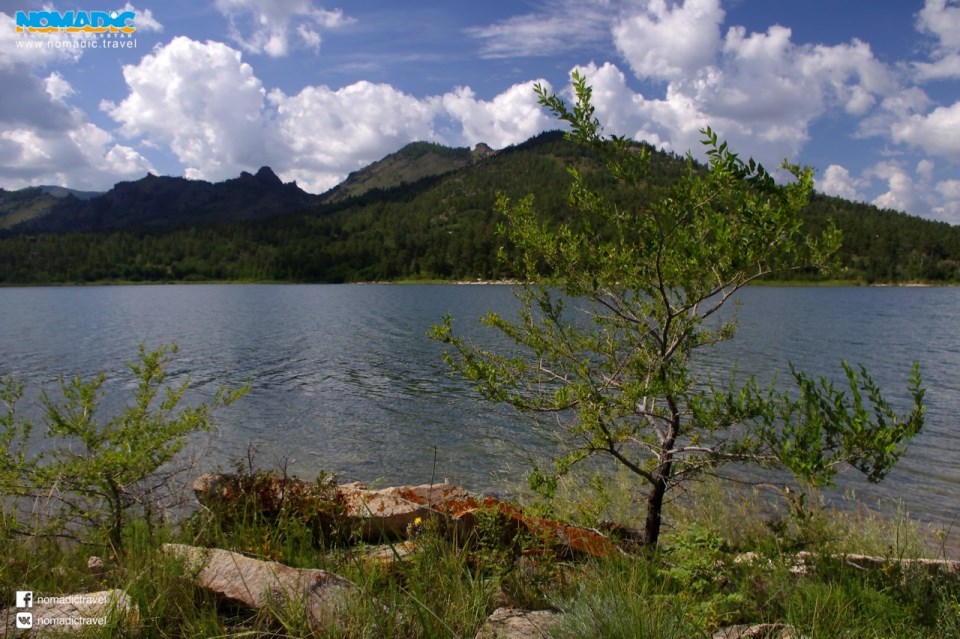Kyzylarai — the highest, the oldest
What better way to begin our trip with Nomadic to the hidden away felt making the village of Shabanbai Bi than began with a speedy and spectacular rush across a slice of Kazakhstan’s remote and dramatic steppe? With not a fencepost, stone wall or building to be seen in any direction, only such a journey can offer one an idea of the vastness of the Central Asia grasslands. We were fortunate to witness this expanse against the backdrop of a rare summer thunderstorm, which served only to further add to the majesty of a landscape that already seemed intriguingly alien to our European eyes.
Arriving at the homestay we were treated to sumptuous portions of the local dish beshbarmak, a hearty stew cooked to a centuries-old recipe, but one which could also have been tailor-made for hungry 21st-century travelers. The feast was all washed down, of course, with strong tea from the samovar and lashings of hospitality from the host family.
Shabanbai Bi is a felt-making village and its slow pace of life offers a glimpse of times past. Herds of semi-wild horses playfully roam amongst the scattering of farmsteads and ramshackle homes. A town hall, mausoleum, mosque and the village’s isolation itself all add to the cozy community feel.
Though much of Kazakhstan’s steppe is flat, Shabanbai Bi is set amongst an unusual bluff of arid craggy hills. This makes the village a great base for hikes to nearby lofty viewpoints and to the numerous shaded ravines carved by streams that gush down from the peaks. We took a stroll up one such valley and were greeted by a group of curious locals who invited us into their portable yurta (tent). Amongst the insistent offerings here was kurt, a kind of rock hard fermented cheese who’s pungent taste defied description and is certainly not for the faint-hearted!
With only a fledgling tourist industry in Kazakhstan as yet, we knew it would have been logistically difficult to explore its wilderness independently. But thanks to Nomadic’s efficient organization and charming polylingual staff we had the chance to experience the Kazakh steppe first hand and gain an insight into a culture one hears little about in the West.





